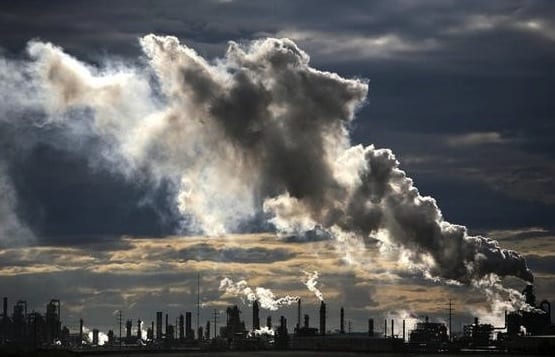Europe’s climate policy proposals reflect the lowest level of ambition required to keep global warming at 2°C, while its goals on renewable energy are “disappointing” and bad news for the industry, according to a new report by banking giant HSBC.
Released on Wednesday, the report is based on the publication of the European Commission policy framework for climate and energy in the period from 2020 to 2030, which it describes as “a first indication of the EU negotiating position in the run up to a global climate deal in Paris 2015.”
In a nutshell, the EU 2030 climate and energy package proposals are for a 40 per cent reduction in greenhouse gases (GHGs) and an EU renewables share of at least 27 per cent in energy consumption, with no individual country goals.
The HSBC report describes the 40 per cent by 2030 GHG aim as “modest” but expected, adding that it “implies a 2% CAGR (compound annual growth rate) for GHG reduction from now on, increasing ambition from the 0.2% pa rate of reduction left for delivery of the 2020 goal.”
But in the context of the long-term goal of an 80 per cent cut in greenhouse gases by 2050, the bloc’s proposals “offer the lowest level of climate ambition” possible, says the report.
“This is the lower end of the GHG emission reduction range (80- 95%) expected from the developed countries by 2050, to limit the global temperature increase to 2°C,” says the report.
“The 2030 GHG reduction target needs to be translated into national GHG targets for the non-ETS sectors before 2021. In addition, member states need to draw up their national plans for competitive, secure and sustainable energy for the period up to 2030.”
On renewables, HSBC describes the 27 per cent goal for the proportion of renewable energy in the overall mix by 2030 as “disappointing,” noting that it suggests growth of renewables in the energy mix will actually slow from a rate of 5 per cent per annum in 2010-2020, to 2 per cent during the 2020-2030 decade.
“The proposed target implies a decline in the growth rate of renewable installations from 2021-30 compared with 2011-20,” says the report (see charts below). “For electricity, from 2020-2030 we estimate 150GW of total new renewable capacity addition, compared with 210GW during the previous decade.”
And while the report notes that this scenario is “marginally better” than the EU trends to 2050 scenario, which points to just a 1 per cent renewable energy growth rate in 2020-30, it stresses that the 2030 package is, on balance, “a negative” for Europe’s renewable energy industry, with no new target for energy efficiency.
“(The research) shows more differences in views in Europe on renewable energy targets than for GHGs,” says the report. “For instance, the UK and Poland have strongly opposed any mandating of renewable targets, whereas Germany and France favoured it.”
The proposed package also provides nations like the UK with the option to choose nuclear technology over renewable expansion. In particular, says the report, there appears to be “increased risk for the offshore wind technology given its higher capital costs and project development risks.”
“Recently, Germany announced its plan to scale down its 2020 offshore wind target from 10GW to 6.5GW, while also limiting annual wind and solar installations to 2.5GW each.
“We now see increasing downside risks for offshore wind targets in the UK, the largest offshore wind market, not only in entire Europe but also globally. In case of a scale down in the UK offshore wind expectations, supply chain development and technology cost reductions are likely to slow- down, thereby adversely impacting the offshore wind installations globally.”
In the absence of country-specific renewable targets, the report points to the carbon price as “an important driver for the economics around renewable capacity additions.”
“The European Commission, rather ambitiously in our view, expects carbon prices to increase to €40/tonne in 2030 under the proposed framework, from an estimated price of €5/tonne in 2020,” says the report. “Prices at €40/t would help accelerate a switch from coal to gas and renewable technologies.”












